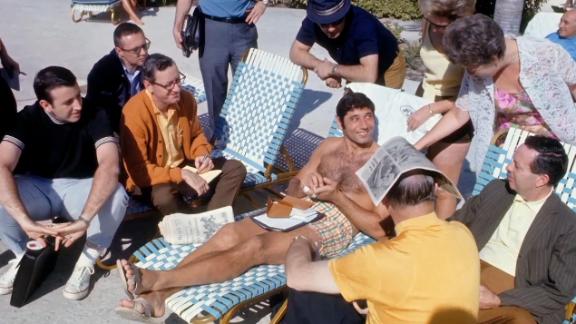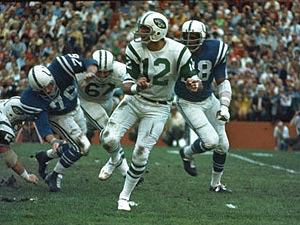50 Years Ago: Joe Namath and the Jets Shock the World Comments Off on 50 Years Ago: Joe Namath and the Jets Shock the World
With apologies to boxing legend Muhammad Ali, the most shocking sports victory of the 1960s took place 50 years ago on January 12, 1969 when the underdog New York Jets lifted the fortunes of an entire league by defeating the heavily favored Baltimore Colts in Super Bowl III.
Though the American Football League (AFL) was completing its ninth season and the champions of the AFL and National Football League (NFL) were meeting for the third straight year, most people did not consider the two leagues to be equal. In fact, it is reported that NFL Commissioner Pete Rozelle believed it might be another decade before the AFL would be an equal to the NFL and that a new format for the Super Bowl might be needed.
In hindsight, we know that the two leagues were indeed much closer in competitiveness than Rozelle believed, but at the time his reasoning was hard to argue against. The NFL Champion Green Bay Packers had claimed the first two Super Bowls by a combined margin of 68-24 and the current NFL Champion Baltimore Colts were perhaps an even more dominant champion than Green Bay.
While the Colts were an established NFL power, the New York Jets were an AFL upstart that had just completed the second winning season in franchise history and were making their first-ever trip to the playoffs.
However, one “ace in the hole” for the Jets was roaming their sidelines. Head Coach Week Ewbank had won two NFL Championships during his nine year tenure as coach of the Baltimore Colts. After moving to the Jets, he had taken the team from a basement dweller to league champions.
During both his time with the Colts and the Jets, Ewbank had the benefit of having an elite franchise quarterback leading the offense.
In Baltimore, he turned Johnny Unitas into an all-time great. Though New York Jets quarterback Joe Namath had not yet reached that status level, in 1967 he did become the first quarterback in pro football history to pass for more than 4,000 yards in a season. Read the rest of this entry →

